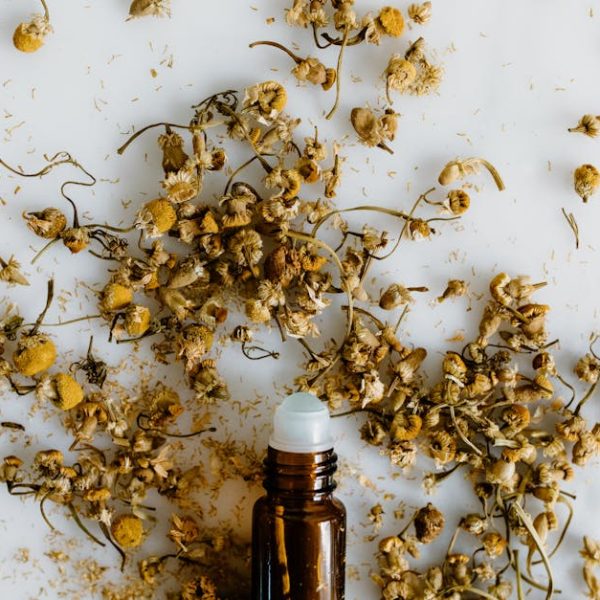Chemical Composition of Ginger and Turmeric
A fascinating feature of these spices is their unique yet diverse chemical composition that make them medicinal powerhouses. Ginger’s main active components are gingerols and shogaols. Gingerols, especially [6]-gingerol, are found in fresh ginger and give it its distinct, pungent flavor. When dried or heated, gingerols transform into shogaols, that are even more potent. These compounds work together to provide ginger’s antioxidant, anti-inflammatory, and anti-nausea benefits.
Turmeric, on the other hand, owes its medicinal properties primarily to the compound curcumin. Considered a potent antioxidant and anti-inflammatory, curcumin gives turmeric its characteristic yellow color and contributes to many of its health benefits. It’s important to note, however, that curcumin is not easily absorbed by the body. Pairing it with black pepper can increase its absorption substantially.
Pro Tip: Enhance your ginger and turmeric benefits! For ginger, heat it to convert gingerols to the more potent shogaols. And for turmeric, always pair it with black pepper to increase curcumin’s absorption.
Health Benefits of Ginger
The consumption of ginger offers myriad health benefits. At its core, ginger is an excellent anti-inflammatory agent. Its active compounds help reduce inflammation and soothe inflammation-related ailments, like arthritis. Beyond these benefits, ginger is highly effective for nausea prevention. Whether you’re dealing with morning sickness, chemotherapy side effects, or post-surgery discomfort, ginger has been proven to lessen or eliminate nausea symptoms.
Pain reduction is another strength of ginger. Studies have shown that this root can alleviate muscle pain and soreness and can even be as effective as common pain relievers for menstrual pain. Lastly, it holistically improves digestion, ensuring our gut and other digestive organs function efficiently.
Best Practices: Incorporate ginger into your diet by adding it to your teas, smoothies, juices, and meals. Consuming ginger in fresh, dry, or oil form will yield the most health benefits.
Health Benefits of Turmeric
Turmeric is celebrated as a superfood because of its extensive health benefits. Similar to ginger, turmeric is a potent anti-inflammatory. Chronic inflammation, if not well managed, can lead to severe illnesses such as heart disease and cancer. Curcumin in turmeric helps protect against these diseases by fighting inflammation at a molecular level.
What truly sets turmeric apart from other spices is its potential role in preventing and perhaps even treating cancer. Research is ongoing, but preliminary studies suggest curcumin can reduce angiogenesis (growth of new blood vessels in tumors), metastasis (spread of cancer), as well as contribute to the death of cancer cells.
Finally, curcumin in turmeric appears to enhance brain function by boosting the brain-derived neurotrophic factor. This growth hormone functions in your brain and can delay or reverse many brain diseases and age-related decreases in brain function.
Best Practices: Include turmeric in your meals, juices or smoothies. Turmeric is best consumed in its whole-food form to get all its nutritional benefits. However, turmeric supplements are also available for easier consumption. Always pair it with black pepper for better curcumin absorption.
Ginger and Turmeric in Traditional and Modern Medicine
Spanning centuries and continents, ginger and turmeric have played crucial roles in traditional medicine. Predominantly used in Ayurveda and Chinese medicine, these spices were and continue to be, hailed for their therapeutic properties. Today, modern medicine recognizes and harnesses these benefits, with an increasing body of scientific research to back.
For instance, ginger’s anti-inflammatory abilities are recognized in modern treatments for arthritis and joint pains. It’s also used in managing post-operative, pregnancy, and chemotherapy-induced nausea.
Turmeric or rather its active ingredient, curcumin, holds a reputation in modern medicine for its anti-inflammatory and antioxidant effects. Current research is exploring its potential in preventing and treating cancer and brain-related diseases.
Pro Tip: Using these spices in their natural form and adding them in food is fantastic. However, to meet specific health needs or to ensure an optimal intake, quality supplements of ginger or turmeric can be beneficial.
Checklist: When choosing supplements, ensure those are:
- High-quality with no fillers.
- Contain the right amount of active compounds, i.e., a good amount of gingerols or curcumin.
- Have generally safe reviews.
Differences between Ginger and Turmeric
Despite sharing several benefits, ginger and turmeric are quite distinctive. In terms of flavor, ginger has a hot, pungent taste, whereas turmeric has a warming, bitter, and slightly peppery flavor. Their appearances are also quite different, with turmeric boasting a vibrant orange-yellow, and ginger showcasing a tan color.
Their uses in cuisine are diverse too. Ginger’s flavor makes it versatile, used in both sweet and savory dishes, while turmeric is mostly used to add color and taste to curries and rice dishes.
In health terms, while both are anti-inflammatory, their specialized health benefits differ. Ginger is best known for treating nausea and pain. Turmeric shines with its potential in preventing heart disease and perhaps, even cancer.
Versus: Ginger vs. Turmeric – which one should you opt for? Well, it depends on your dietary needs and health goals. If you’re looking to reduce nausea or inflammation-related pain, ginger could be your go-to. For potential heart health and cancer prevention benefits, turn to turmeric. And remember, it’s not a choice between the two. Incorporating both these spices in your diet can yield multiple health benefits.
Pro Tip: Try including both ginger and turmeric in your diet for a robust health boost. You can add ginger to your tea or sweets, and sprinkle turmeric on your soup, rice, or salad. Enjoy their unique flavors while taking advantage of their health properties.
Pro Tip: When enjoying these spices, remember moderation. Although they are generally safe, high doses or long-term use can cause stomach upset or other unwanted side effects. Always consult your healthcare provider before starting any new health regime, especially if you’re pregnant, nursing, have existing health conditions, or are on medication.
Key Takeaway:
- Both ginger and turmeric have unique chemical compositions that contribute to their health benefits. Ginger houses gingerols and shogaols, while turmeric is rich in curcumin.
- Health benefits of ginger include anti-inflammatory effects, nausea prevention, pain reduction and improved digestion.
- Turmeric, on the other hand, is known for its anti-inflammatory and antioxidant effects, possible cancer preventive properties and benefits for brain function.
- Ginger and turmeric have been used in both traditional and modern medicine for their therapeutic properties.
- Both spices have distinct uses, benefits, and suitability for various health conditions and dietary needs.
Do not hesitate to include both ginger and turmeric in your diet, as both offer amazing health benefits. However, it is always wise to consume mindfully, watch for any adverse reactions and opt for quality, filler-free supplements if needed. Their right balance can enhance flavor in your dishes and bolster your well-being, improving overall quality of life.
FAQs
Q: Can I consume ginger and turmeric every day?
A: Yes, ginger and turmeric can generally be consumed daily in moderation. However, remember to consult your healthcare provider before starting any new health regime particularly if you have existing health conditions or are on medication.
Q: Are there any side effects of consuming too much ginger or turmeric?
A: High doses or long-term use of ginger or turmeric can cause stomach upset or other unwanted side effects. It’s always best to start with small amounts and increase your intake gradually under medical advice.
Q: Can I use turmeric instead of ginger (or vice versa) in recipes?
A: Although both ginger and turmeric are rhizomes and have similar uses, they have distinct flavors. Substituting one for another may alter the taste of your dish. Therefore, it’s best to follow the recipe’s recommendation.
Q: Can ginger or turmeric interact with my medication?
A: Ginger and turmeric have blood-thinning properties and may interact with medications like anticoagulants. Always consult your healthcare provider before including them in your diet if you are on medication.
Q: Can pregnant or nursing women consume ginger and turmeric?
A: Ginger can help with pregnancy-induced nausea, and turmeric is generally considered safe in food amounts during pregnancy. However, high doses should be avoided and it’s always best to consult your healthcare provider before making any significant dietary changes.
The best approach towards embracing healthier habits is to stay informed and proactive. Don’t hesitate to share this insightful article with your loved ones and explore more health-centric posts on our website.





